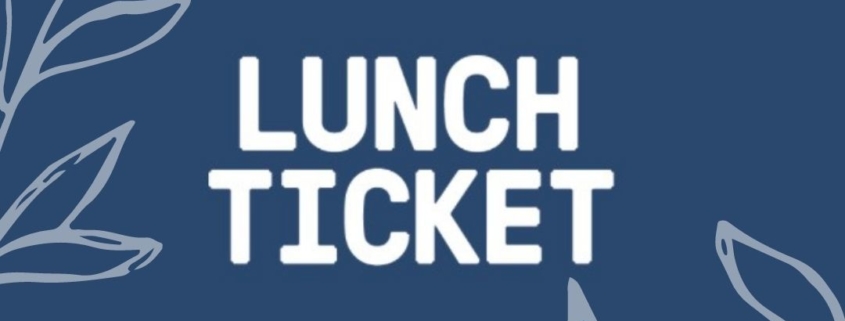The Best Idea For A Novel Ever!
Hello fellow pen slingers!
To kick off the inaugural blog post here on Free Lunch I want to talk about the one question that bothers writers the most:
Where do you get ideas from?
I surveyed my writing friends quite scientifically (think Facebook) and asked them what question they get the most. “Where do you get your ideas from?” was the front-runner followed closely by “How do I get published?” I thought I would try to answer the one question I can help you, dear reader, with.
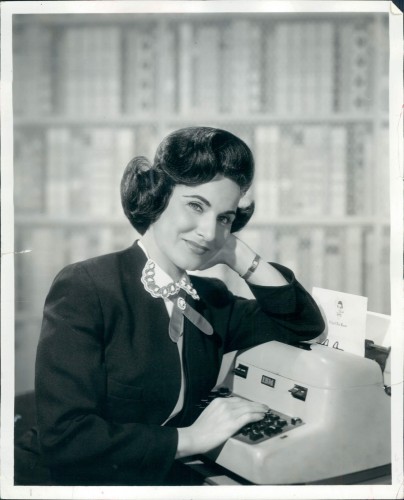
Photo: http://staff.xu.edu/polt/typewriters/vanburen.jpg
In all honesty this is a perfectly valid question and I think that we, as writers, feel the need to answer as dramatically as we can so that we can be real writers. Writers with a capital W.
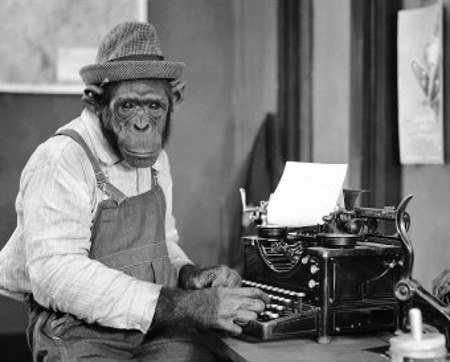
Photo: http://staff.xu.edu/polt/typewriters/vanburen.jpg
But, really, what do you say? Here is a list of places I’ve said my inspiration has come from:
I got this one fortune cookie that told me to do it:

Photo: http://www.oddee.com/_media/imgs/articles/a210_c1.jpg
I was messing around on Google search:

Photo: http://1.bp.blogspot.com/-tgHqDXFxL70/UVxqXUSbelI/AAAAAAAAFGs/IDz8Vl7fOu4/s640/fist-pump-baby.jpeg
Drugs and/or alcohol were messing around with me:
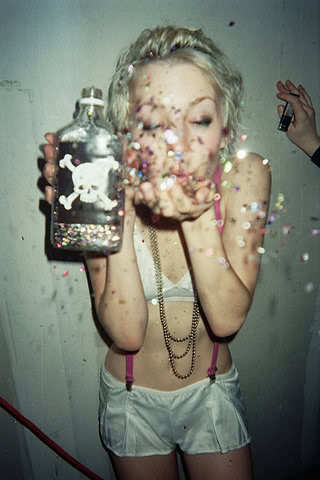
Photo: http://cdnimg.visualizeus.com/thumbs/5d/fa/pary,girl,glitter,party,poison-5dfaaff15450fc1923516479ba250532_h.jpg
God whispered the plot in my ear:
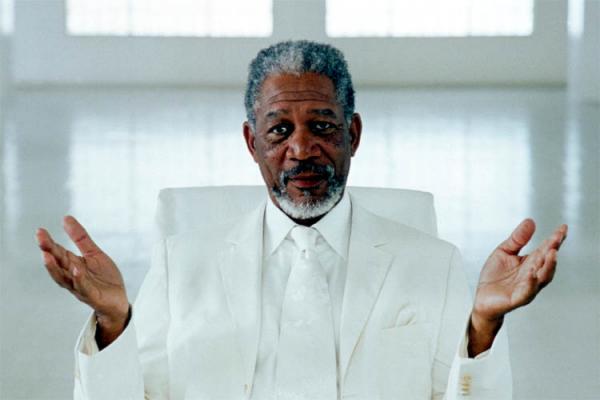
Photo: http://ionetheurbandaily.files.wordpress.com/2012/06/morgan-freeman-god.jpg
The truth for all writers is that inspiration is much more complicated than divine intervention. Good ideas, the kind that lead to novels, movies, or dance routines come from a nebulous place that can be hard to put your finger on.
Stephen King says that he came up with the plot for Misery in a dream on an airplane. It was so vivid he had to sit down at the airport and write the first fifty pages.
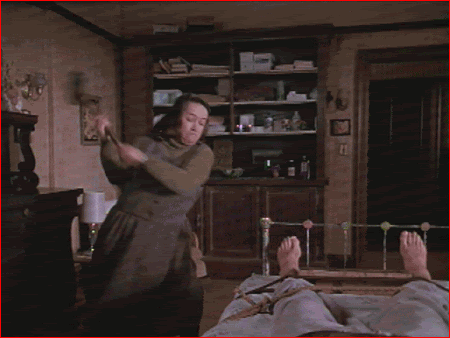
Photo: https://lh5.googleusercontent.com/-Nhv2aLZK3cM/URaeGfRpreI/AAAAAAAAUQk/CBbDJvALpjY/misery.jpg
Some dream.
King says , “I’ve always used dreams the way you’d use mirrors to look at something you couldn’t see head-on, the way that you use a mirror to look at your hair in the back (Epel, 24).
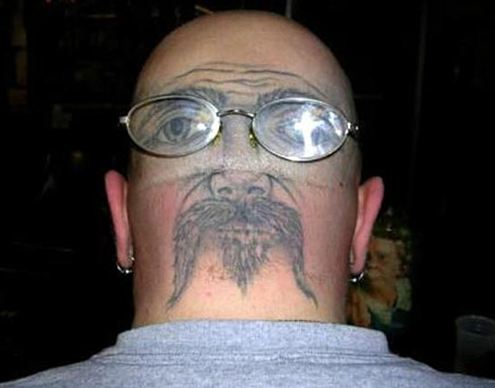
Photo: http://cocktailswithmom.com/wp-content/uploads/2011/07/face2.jpg
How do the rest of us go about looking at the back of our heads? What can we do to have the same trust in our dreams? How do we know the difference between a sit-down-and-immediately-write-fifty-pages-about-it dream and a nonsense I-ate-way-too-much-chili-last-night dream?

Photo: tanks funny-potato!
Maybe what Mr. King was getting at is the need to listen to your brain when it is in a more relaxed state; when, theoretically, your creativity flows more freely. I know something else the flows very easily. I’ll give you a hint:
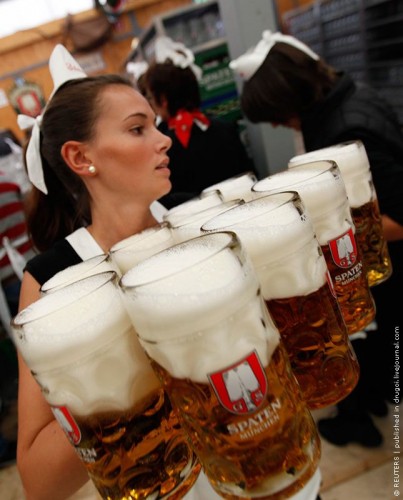
Photo: Retuers; drugol.livejournal.com
Ernest Hemingway is famous for saying “write drunk, edit sober.”
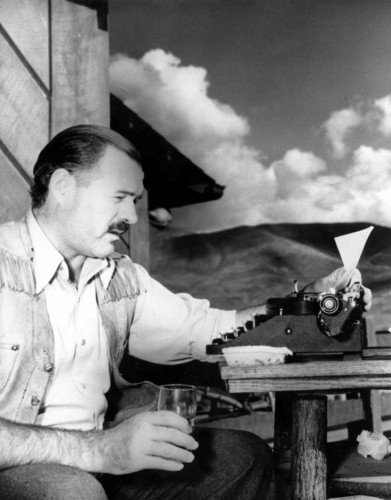
Photo: http://rachelwritesabook.files.wordpress.com/2011/08/hemingway.jpg
Of course the rest of us mere mortals don’t look quite so heroic when we try to write drunk.
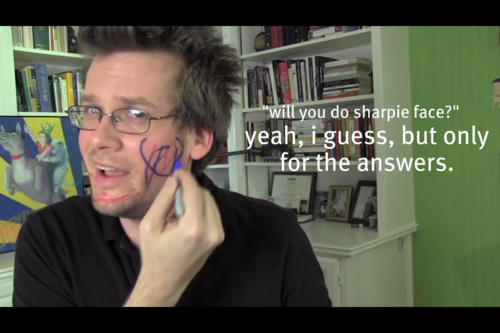
Photo: http://31.media.tumblr.com/tumblr_m19dmo4JUQ1r6wmteo1_500.png
I think there must be a better way of accessing that altered state without the dire consequences of “going too far.”
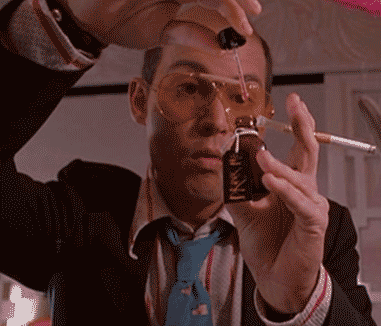
Photo: http://31.media.tumblr.com/tumblr_lvw6ma3ViJ1r7gq2to1_400.gif
Speaking of going too far; Hunter S. Thompson once said “I hate to advocate drugs, alcohol and violence for anyone, but they have always worked for me.”
They were all after the same thing: Hemingway with his drinking, King with his dreams, and Thompson with his …anything he could get his hands on… These men are perhaps best known for their honesty about their (sometimes absurd) attempts to hear their muse.
They were all after that spark of creativity. We have all felt the need to go to ridiculous lengths in an effort to “listen to our muse.”
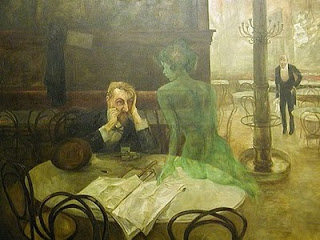
Photo: http://1.bp.blogspot.com/_FEZc22SfAy4/TCWX58vyfWI/AAAAAAAABgk/wzM67kx4omM/s320/absinthe.jpg
While we make fun of Thompson’s epic consumption of mind-altering substances, Hemmingway’s prodigious drinking, and King vast inhalations of Coke in the 80s, I think it is more important to recognize that all three men were dedicated to their craft. All this drug and alcohol use was just smoke and mirrors, cloaking what was really important about these guys. It isn’t about how these men searched for their muse, rather, it is that they showed faithfully up to listen for her.
They wrote…
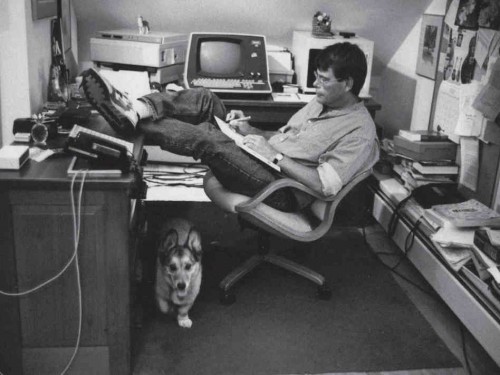
Photo: http://media.npr.org/assets/artslife/books/2010/07/stephen-king-on-writing/stephen-king-on-writing-d1d225f2c6e25fcd45dce87de1f77d4d6e695e5f-s6-c30.jpg
and wrote…
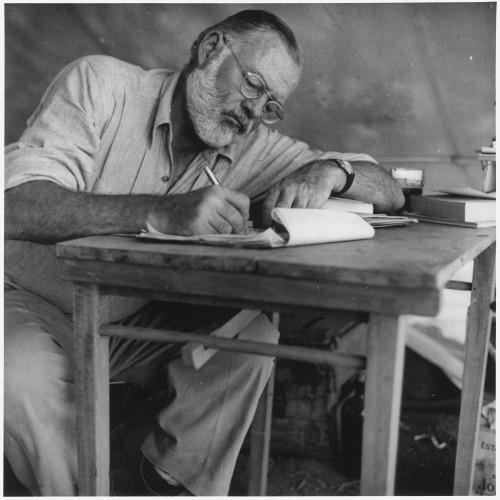
Photo: http://upload.wikimedia.org/wikipedia/commons/7/73/Ernest_Hemingway_Writing_at_Campsite_in_Kenya_-_NARA_-_192655.jpg
and wrote some more…
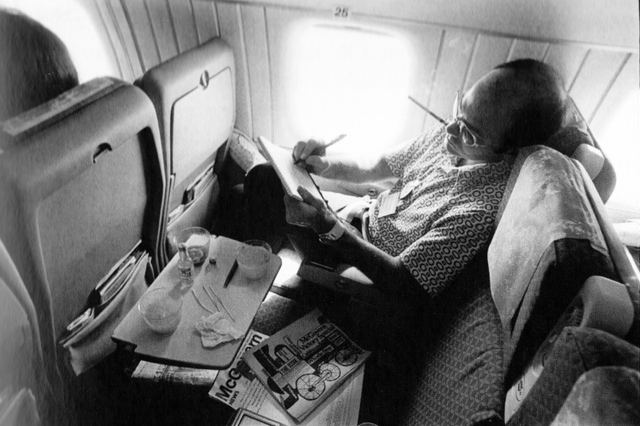
Photo: http://www.scenario-buzz.com/wp-content/uploads/2012/07/Hunter-s-Thompson_California_1972_by_Annie-Leibovitz.jpg
Until they were sick of it…
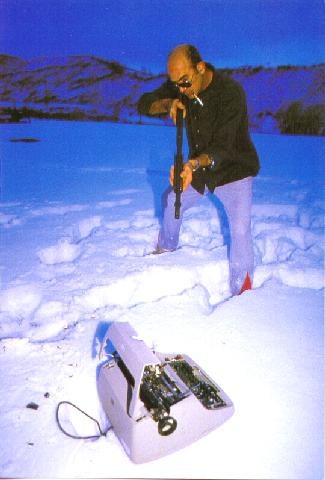
Photo: http://www.toptenz.net/wp-content/uploads/2010/06/Hunter-S-Thompson-pointing-gun-at-typewriter.jpg
But, they still wrote. And they kept writing.
No. Matter. What.
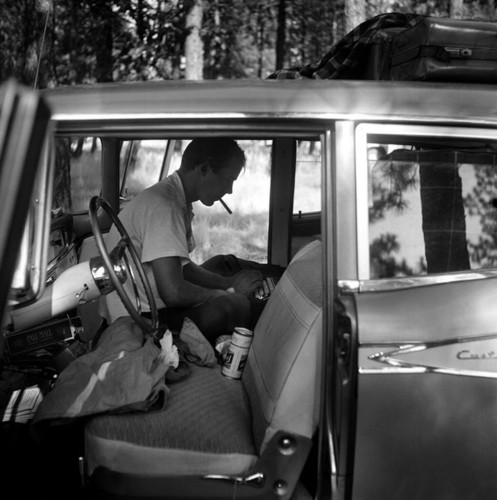
Photo: http://images.hemmings.com/wp-content/uploads//2013/05/HunterSThompson_1000.jpg
So, how do you get your ideas?
How do you look at the back of your head? What works for you?
Caitlin was born and raised in Portland, Oregon. She still lives there, and this makes her a rare unicorn in a sea of transplanted twenty-somethings who came to be artists and drink cheap beer. Also, she is now in her 30s and has moved on to Bourbon. She is a current MFA candidate in fiction at Antioch University LA. She has been published here and there with the last one being in Chiasmus Press’ Stories from the Edge: A Northwest Anthology.

